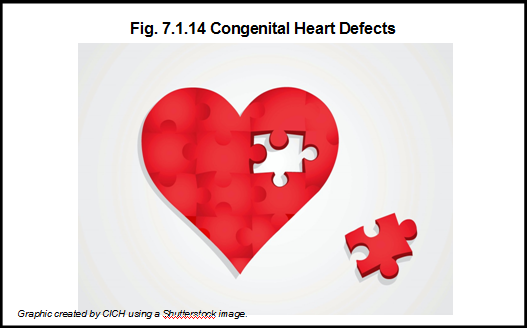Congenital Heart Defects

…continued
In most situations, the cause of congenital heart defects is unknown. Although many congenital heart defects can be genetic, viral infections such as rubella (measles) or drug and/or alcohol use during pregnancy are known to increase risks. Thus, the causes are multifactorial. Babies born with congenital anomalies often have other congenital or chromosomal anomalies, such as Down syndrome, trisomy 13 or 18, or Turner syndrome.2
1Health Canada. Congenital Anomalies in Canada — A Perinatal Health Report, 2002. Ottawa: Minister of Public Works and Government Services Canada; 2002.
2Congenital Heart Disease. Heart and Stroke Foundation of Canada http://www.heartandstroke.ca/heart/conditions/congenital-heart-disease– accessed June 20, 2017.
Congenital heart defects – where the heart or the blood vessels near the heart do not develop normally before birth – are the most common congenital anomalies. In Canada, 1 in 100 to 150 babies are born with a congenital heart defect.1 There has been progress in the early diagnosis and surgical treatment of congenital heart defects that has resulted in a decrease in death and illness. Sixty years ago, less than 20% of infants born with complex heart defects lived to adulthood. Today, more than 90% live to adulthood due largely to surgical procedures, the development of regional cardiac surgical centres, and improved medical care.2 Despite this progress, congenital heart defects remain the leading cause of childhood death among congenital anomalies in Canada. Children who suffer from the most serious heart defects require complex medical care and can have a greatly compromised quality of life.1 continued…
For more information on congenital anomalies see Section 5: Congenital Anomalies; Genetics and Paediatric Health Module.
